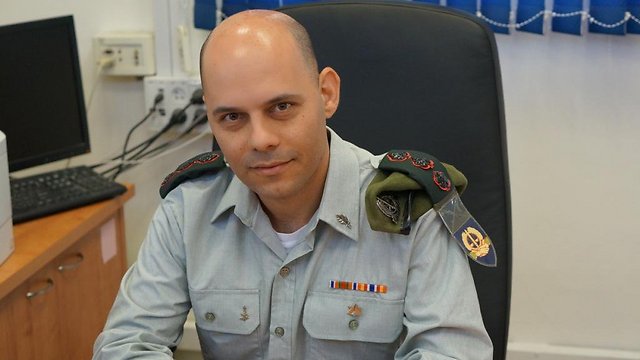

IDF legal expert: No widespread sexual harassment in army
Chief Military Defense Counsel Col. Ran Cohen, who was part of a defense team of a high-profile commander convicted of sexual offenses, believes the excessive attention of sexual harassment cases ruins careers of those 'who dedicated their lives to military'
A chief officer in IDF's military justice system said the military's handling of sexual harassment cases is overblown and the issue is not a widespread phenomenon in the Israeli army, according to an interview published Monday in an Israeli law magazine.
"I don't think it would be right to say that sexual harassment is a wide-spread phenomenon in the army," said Chief Military Defense Counsel Col. Ran Cohen to Orech Hadin magazine.
"The IDF sends a sharp and clear message about such actions. I am positive that the army acts so emphatically and even excessively in balancing the rights of officers and their families and the need to fight the sexual harassment phenomenon because of outdated stigmas.
"There is no dispute that sexual harassments should be handled harshly, but on the other hand; commanders, who have dedicated their entire lives to the military system, find themselves in danger of being laid off or facing financial ruin for complaints about minor misdemeanors and even consensual sex. It is important not to blow the struggle for a safe and respectful workplace out of proportions."
Cohen was a part of a defense team for Former Commander of the Golani Brigade Ofek Buchris, convicted in 2016 of sexual offenses as part of a plea deal.
Cohen then goes on to say that soldiers harshly are punished more than civilians for the same crimes.
"A soldier is at a much greater risk of harsher enforcement. Like drugs offenses, for instance, namely cannabis," said Cohen. "The soldier will be arrested, interrogated, indicted, punished, sent to prison and carry a criminal record that will follow them to their civilian life. The civilian, will likely suffer little to no consequences and it’s near certain that the investigation will close without an indictment."
He also enumerated issues within the current military justice system, mainly the excessive use of incarceration as a rehabilitative measure and lack of training for military police investigators. "The army sees incarceration as the only valid rehabilitative tool, as opposed to other punishment measures," he said.
"There is also often abusive conduct by military police investigators, which stems from lack of professional training and experience. In those investigators' eyes, the end justifies the means when trying to get a confession out of an interrogee.
"Sadly, this phenomenon is not declining, and in some ways may even be on the rise due to shortening of training periods for military police investigators."

















